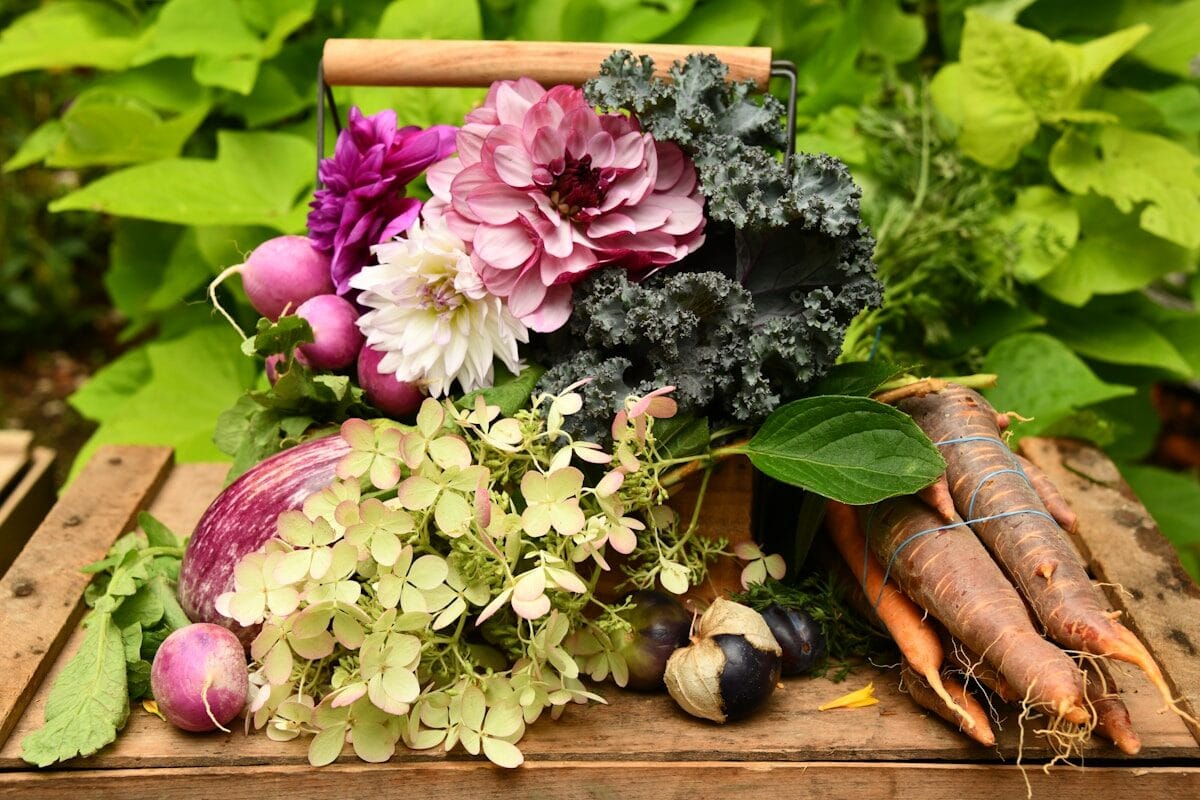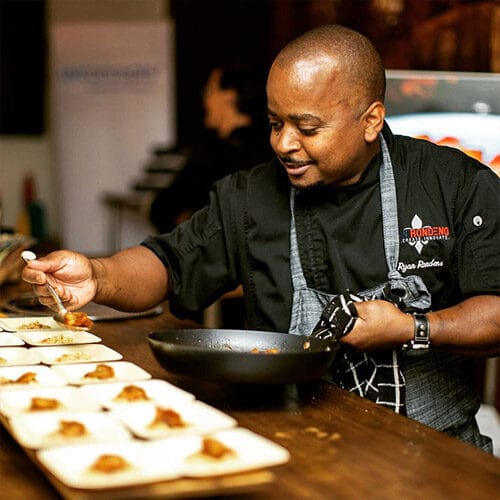Happy Table- How British Summer Greens Are Enriched by Foreign Flavours
British entertaining in 2025 sees a delightful renaissance embracing local ingredients and foreign flavours. Seasonal hosting trends reflect cultural shifts and innovative culinary creativity.

As bank holiday weekends stretch before us, British kitchens are witnessing a delightful renaissance in seasonal entertaining. The joy of hosting has evolved beyond simple barbecues to embrace a rich palette of local ingredients and globally-inspired flavours that celebrate the abundance of British summer vegetables and fruits.
The movement towards seasonal greens reflects a broader cultural shift where home cooks are rediscovering the pleasure of creating memorable experiences around the table. Rather than relying on processed convenience foods, we are turning to dishes that showcase the natural bounty of British farms and gardens – from the first tender asparagus spears to the most vibrant summer berries. This trend aligns perfectly with the growing popularity of dinner party culture across Europe.
Foreign Flavours Enriching Local Ingredients
Far from replacing our beloved traditional Sunday roasts , this season’s culinary entertainment trends are serving more than just flavor—they’re showcasing a dynamic fusion of international cooking techniques with the humble brilliance of British-grown vegetables. As foreign cuisine continues to influence what we cook at home and how we host, there’s a newfound appreciation for elevating local ingredients using far-flung inspiration.
Gone are the days when root vegetables were confined to traditional roasts. Now, celeriac is getting charred over open flames in the Japanese robata style, while leeks are being poached in dashi and finished with miso butter. British asparagus, once seen only with hollandaise or tossed in a salad, is now being pickled with Korean spice blends or fire-blistered and dressed in yuzu kosho. This isn’t fusion for novelty’s sake—it’s a respectful meeting of tradition and innovation, where earthy, seasonal produce becomes the canvas for global artistry.
This trend is especially visible in how people are entertaining at home. Hosts are leaning into mezze-style spreads that feature beetroot hummus swirled with tahini and za’atar-roasted carrots, or cold soba noodles topped with shredded radish and marinated British cucumber. Chefs and home cooks alike are layering textures and techniques—think harissa-glazed swede fritters or turmeric-roasted cauliflower with a tamarind drizzle.
Much of this evolution stems from a deeper shift in the way we value sustainability and seasonality. With a heightened awareness of food miles and the carbon footprint of our meals, more entertainers are choosing British-grown veg as their foundation—then looking abroad for creative ways to let those ingredients shine.
In many ways, this is the golden age of veg-led entertaining. The modern host is confident in serving up bold, meat-free main events like stuffed Romano peppers with Persian rice, or a centrepiece pumpkin roasted with Mexican mole and lime crème fraîche. And it’s not just about the food—tablescapes echo the global-meets-local ethos, with rustic linen, ceramics in earthy tones, and menus that read like a passport through the vegetable patch.
What we’re seeing is a joyful, global embrace of vegetables as not just a side act, but the star. And in kitchens across Britain this weekend, that might look like Jersey Royals draped in Sichuan pepper oil, or courgettes grilled like Greek souvlaki and served with a smoky baba ganoush.
Ultimately, these trends reflect a cultural moment where the world feels both big and small—where the beetroot from the farm down the road meets the spices of Marrakech or the broths of Hanoi in one beautiful, bold, and utterly entertaining meal.
The Joy of Hosting at Home
Modern entertaining philosophy prioritises dishes that can be prepared ahead, allowing hosts to spend more time with their guests. The age of frenzied last-minute cooking and performative hosting is giving way to a more thoughtful, soulful approach—one that prioritises engaging with your guests over your meal perfection, and connection over culinary spectacle. At the heart of this new philosophy is a simple, elegant idea: prepare ahead, so you can be fully present when it matters most.
Today’s most inspiring hosts aren’t the ones juggling hot pans and multiple timers as guests arrive. They’re the ones welcoming friends with a calm smile, a poured drink, and a table that feels as inviting as it is effortless. Their secret? Meals that are mostly made before the doorbell rings.
This isn’t just practicality—it’s a mindset shift. It’s about designing menus around dishes that develop deeper flavour with time, that welcome rest and reward advance planning. A slow-braised beef shin or a spiced chickpea stew only improves overnight. A roasted vegetable tart can be served at room temperature, topped with herbed crème fraîche just before guests sit down. Even desserts are leaning into this rhythm: think set custards, poached fruits, or a layered pavlova assembled minutes before serving.
But this philosophy goes far beyond what’s on the plate. It’s about reclaiming the role of host not as performer, but as participant. When the work is done ahead of time, you’re free to linger over stories, clink glasses in real time, and truly listen. You’re not vanishing to “check on the oven”—you’re right there in the warmth of the moment, where memories are made.
This kind of hospitality feels generous in a new way. It says to your guests, I made time for you before you arrived, so I could give you all of me now. It’s a subtle shift, but one that transforms the experience. The food may be simpler, but the atmosphere is richer. There’s no pressure, no frantic energy—just a table that hums with ease and intimacy.
And in a world that often rewards busyness, this approach feels quietly luxurious. It gives space for details to shine: the playlist you had time to curate, the candlelight flickering just so, the unfussy dishes that taste like they’ve been made with care—because they have.
Ultimately, this is more than a trend. It’s a return to what hospitality has always been at its best: a celebration of togetherness. It’s not about impressing; it’s about belonging. And as more hosts embrace the beauty of preparing ahead, they’re discovering something powerful: when you let go of the rush, what you make—food, memories, connection—is infinitely more meaningful.
So set the table the night before. Chop the herbs early. Braise the stew and chill the wine. And when your guests arrive, meet them not with a flurry—but with a full heart and an open seat at the table. That’s where the magic begins.
This approach echoes the British cultural emphasis on creating spaces for meaningful conversation and connection. Such touches reflect a deeper desire to slow down and savour moments around a happy table, much like the thoughtful approach seen in Sunday lunch traditions that create lasting memories.
There is a growing interest in plant-based options, which reflects a broader movement towards mindful eating and sustainability. It is best to ask your guests in advance about their eating choices.
Dessert trends reveal a preference for fruit-forward options that celebrate summer’s natural sweetness. This weekend we will share a few creative touches to transform simple recipes into memorable experiences that guests will treasure long after the last bite.
The Future of British Dining
These evolving entertaining trends suggest that British hosts are increasingly confident in their culinary creativity, willing to experiment with global flavours whilst maintaining deep respect for seasonal ingredients. The emphasis on make-ahead dishes and sharing platters reflects our desire to create meaningful connections around food without sacrificing the host’s ability to participate in the conversation.
According to recent UK food trend research, classic British dishes are experiencing a renaissance with modern twists, incorporating high-quality, locally sourced ingredients and refined culinary techniques. This revival demonstrates how contemporary entertaining balances innovation with tradition.
As we move through 2025, expect to see this balance between innovation and tradition continue to shape how we gather around our tables. The most successful entertaining will be that which combines adventurous flavours with the timeless British values of hospitality, seasonality and the simple pleasure of sharing good food with people we care about.
Do you want to share your story and inspire our readers ? Make The GOOD NEWS with us . Let’s start paving the way for a fairer, happier society together!




